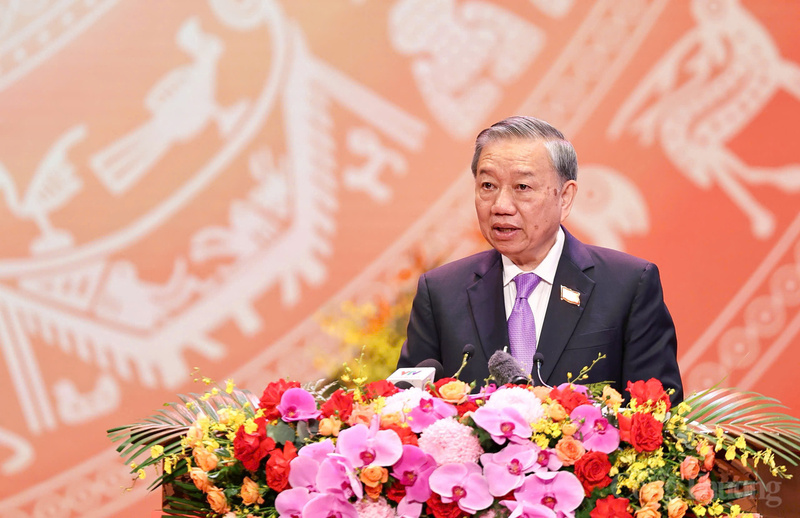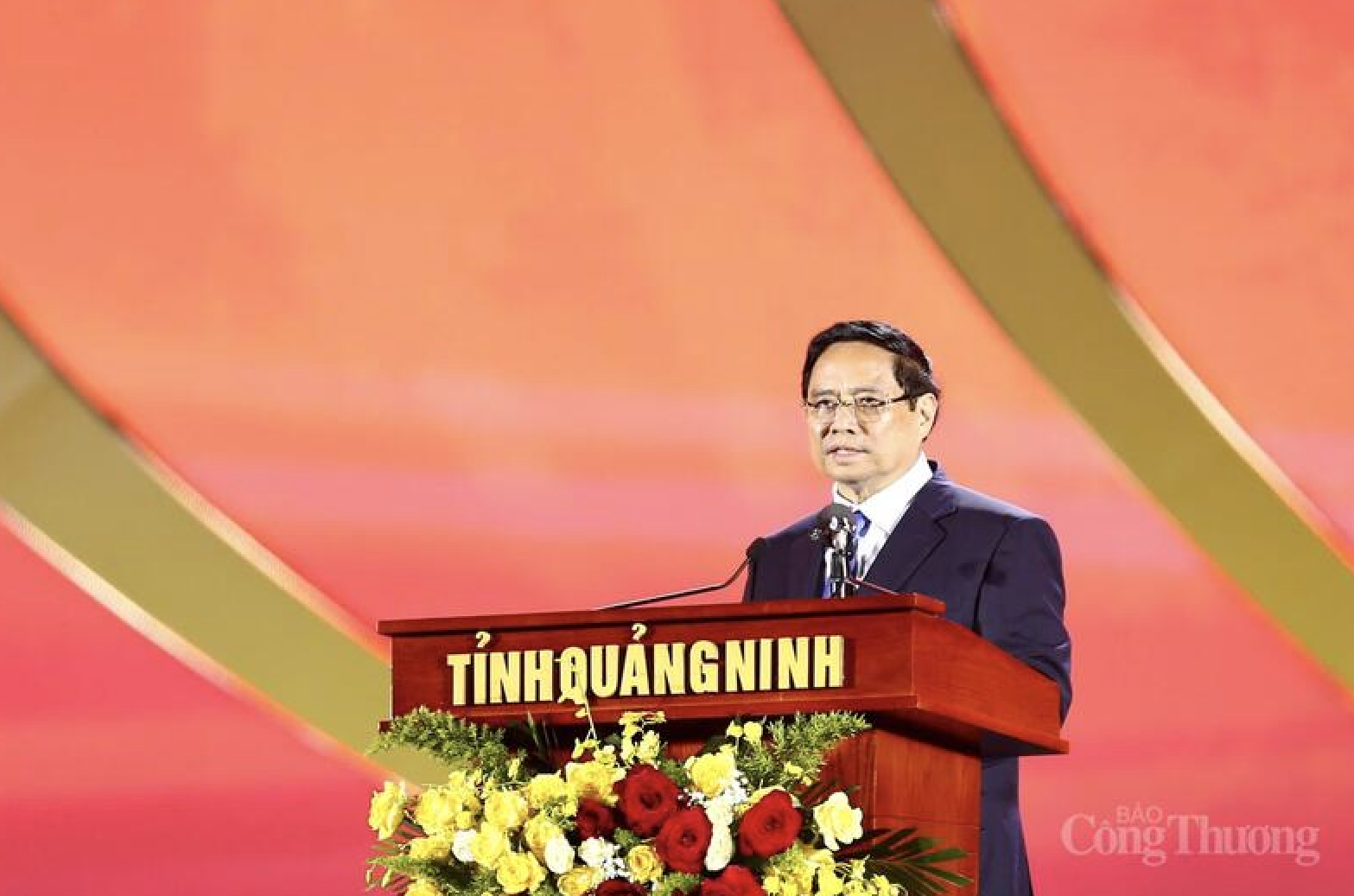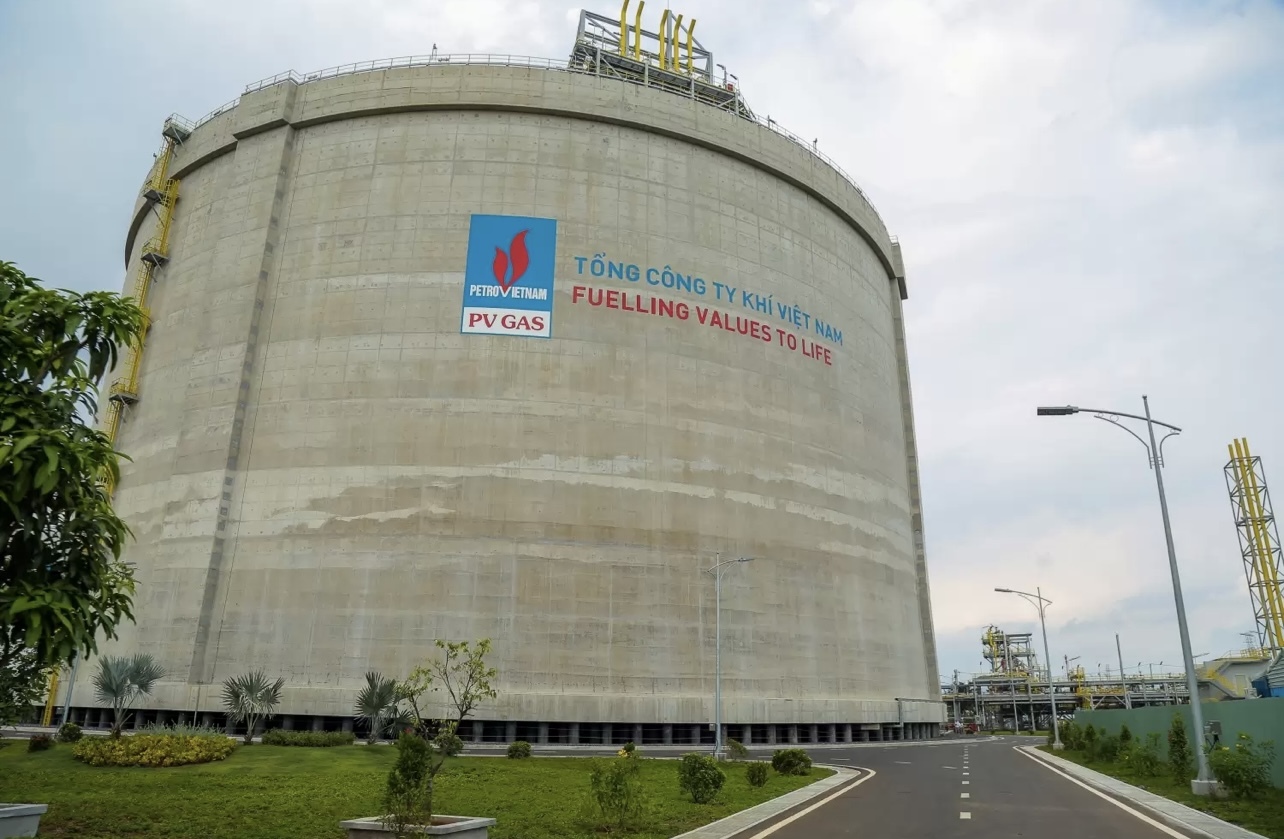
Vietnam’s leaders attend ceremony marking 80th anniversary of government
19:05 | 23/03/2025 17:07 | 20/08/2025News and Events
Attending and delivering remarks at the first Party Congress of the Ministry of Industry and Trade (MoIT) for the 2025–2030 tenure, Politburo member and Deputy Prime Minister Bui Thanh Son highlighted the Congress's great significance as the country embarks on a new phase of transformation toward the 14th National Party Congress.
He emphasized that the upcoming 14th National Congress of the Communist Party of Vietnam, scheduled for early 2026, marks a defining moment in the country’s development journey and opens a new era for the Vietnamese nation. In this context, the MoIT Party Congress was convened at a historic juncture, as the entire political system is determined to realize the goals of the 13th National Congress and welcome the next Congress with outstanding achievements.

Deputy Prime Minister Bui Thanh Son emphasized that the Ministry of Industry and Trade had strived for "more than 100% of its strength", contributing comprehensively to the results of Vietnam's socio-economic development.
Deputy Prime Minister Bui Thanh Son underlined the comprehensive transformation underway, centered around four strategic pillars: advancing science, technology and innovation; promoting the private sector; reforming legislation and law enforcement; and deepening international integration.
“All of these efforts are aimed at ensuring fast and sustainable national development, bringing prosperity and happiness to the people, and realizing the dual centenary goals — marking 100 years of the Party's founding and the country's independence,” he said.
Speaking highly of the thorough preparations for the Congress, he praised the MoIT’s Party Committee for successfully organizing subordinate-level congresses in all 38 affiliated units. He affirmed that the documents submitted — including the political report and thematic papers — were professionally crafted, aligned with strategic objectives, and demonstrated a clear vision for the new era.
“The discussions were well-articulated and vibrant. They not only presented the directions of each unit but also reflected a spirit of renewal, high responsibility, and strong determination by all Party members within the Ministry,” he stated.
Exceeding expectations to drive socio-economic growth
According to the Deputy Prime Minister, over the past five years, the world and regional landscape have witnessed profound upheavals. However, Vietnam has stayed resilient, with the Party, National Assembly, and Government implementing bold, synchronized policies to ensure robust economic growth.
In 2024, the economy achieved all 15 planned targets, with GDP growth reaching over 7 percent. The first half of 2025 saw growth at 7.52 percent — the highest rate since 2011 and one of the highest in the past two decades.
The MoIT played a pivotal role in these achievements, contributing "more than 100 percent of its capacity," he noted. The sector demonstrated unity, initiative, creativity, and breakthroughs across six key areas.
First, in institutional building, the ministry spearheaded the drafting and revision of hundreds of laws, decrees, and circulars, particularly in the energy and industrial sectors. Between 2021 and 2025, the MoIT issued over 250 legal documents and more than 20 development strategies and plans.
A significant milestone was the successful passage of the amended Law on Chemicals and the Law on Efficient Use of Energy in a single National Assembly session, as well as several landmark decrees that laid the foundation for economic innovation and growth.
Second, in energy development, the ministry recorded major breakthroughs. The third 500kV transmission line was completed with record speed and scale. Nuclear energy development was resumed, and bottlenecks in major renewable energy projects were addressed. Oil and gas revenues surpassed VND 1 quadrillion in 2024, while offshore wind and key energy projects progressed steadily.
Notably, the amended Electricity Law was passed with over 91 percent approval. The separation of the National Load Dispatch Center from EVN marked a critical institutional reform, ensuring transparent, efficient power regulation.
Third, under MoIT’s guidance, import-export activities reached historic highs. Trade turnover in 2024 hit USD 786.29 billion, nearing the USD 800 billion mark. The country posted a trade surplus for the ninth consecutive year, reaching nearly USD 25 billion.
The ministry proactively opened new markets in the Middle East, Africa, Southern Europe, and the Halal market. The signing of the Vietnam-UAE Comprehensive Economic Partnership Agreement brought the total number of FTAs in force to 17, further expanding export potential.
Trade promotion was restructured to focus on digital transformation, sustainability, and localization. For the first time, Vietnam’s national brand value exceeded USD 500 billion, ranking 32nd globally. Trade defense mechanisms successfully protected domestic interests amid global challenges.
Fourth, the domestic market continued strong growth, with retail and services expanding by 9 percent. E-commerce alone exceeded USD 25 billion in 2024 — a 22 percent increase from 2023 — accounting for 9 percent of total retail sales and two-thirds of the country’s digital economy.
Vietnam’s e-commerce growth was among the world’s fastest, according to assessments at the WEF Tianjin meeting, placing it in the global top 10.
Fifth, the industrial sector experienced a strong rebound, growing 8.4 percent. Manufacturing surged by nearly 10 percent, compared to under 1 percent in 2023. Industry continued to account for over 30 percent of GDP, with manufacturing representing 80 percent — positioning Vietnam as a regional production hub.
Sixth, the Party Committee of the MoIT maintained a steady pace in both Party-building and professional duties. It enhanced ideological education, promoted learning and emulation of President Ho Chi Minh’s example, and improved leadership mechanisms. The ministry also streamlined its organizational structure, reducing nearly 18 percent of its units and improving efficiency.
Deputy Prime Minister Bui Thanh Son acknowledged the achievements: “The MoIT has made great strides in streamlining the apparatus, decentralizing authority, cutting administrative procedures, and supporting businesses. I warmly commend the Party Committee for its outstanding efforts over the 2020–2025 term.”
Shifting gears toward breakthroughs
While recognizing these accomplishments, the Deputy Prime Minister also pointed out several shortcomings. Institutional bottlenecks, ineffective implementation, overreliance on FDI for exports, limited localization, and underdeveloped supporting industries remain challenges. Smuggling and counterfeit goods continue to undermine market management.
He called on the Congress to carefully analyze these issues and propose concrete solutions to build a stronger, more resilient MoIT.
Reflecting on key lessons from the past term, he emphasized unity, strict adherence to Party principles, pragmatic leadership, talent development, focused execution, and effective oversight. Citing the 500kV transmission project as an example, he stressed the need to seize opportunities when conditions are ripe and to deliver tangible results.
Looking ahead, Vietnam will continue to face global uncertainties along with new opportunities. The country is entering a crucial phase to fulfill the 13th Congress’s goals and lay the groundwork for the 14th Congress.
With a proud 74-year legacy, the MoIT is expected to remain the main state body responsible for industrial and trade policy, a “flag bearer” in the economic front, a stronghold for enterprises, and a trusted companion to the business community — including both private firms and state-owned enterprises.
The Deputy Prime Minister endorsed the strategic directions outlined in the political report and suggested several additional priorities:
First, strengthen leadership across all political and professional responsibilities. Successfully implement the 14th Party Congress Resolution once adopted, aiming to make Vietnam a modern industrialized nation with high income by 2030 and top-tier competitiveness in ASEAN. The country should maintain its position in the world’s top 20 exporters and top 30 retail markets, while modernizing energy, trade, and logistics infrastructure.
Four national-level plans must be prioritized: energy, electricity, petroleum storage infrastructure, and mineral exploration and extraction — involving around 50,000 projects and investment worth trillions of dong.
Second, embrace a new vision based on knowledge, innovation, and sustainability. The MoIT should lead in developing green and digital industries, restructuring toward high-tech, eco-friendly manufacturing. Key sectors include electric vehicles, semiconductors, renewable energy equipment, and sustainable textiles.
Third, ensure national energy security while advancing renewable energy. Effectively implement Power Development Plan VIII, promote wind, solar, and green hydrogen, and reform the electricity market to enhance transparency and efficiency.
Fourth, modernize trade to support high-value exports. Reduce dependence on raw materials, expand markets via FTAs (especially with GCC and Mercosur), and boost cross-border e-commerce and digital trade ecosystems.
Fifth, protect the domestic market and enhance the competitiveness of Vietnamese firms. Strengthen the “Vietnamese prioritize Vietnamese goods” campaign, bolster trade defense, and combat unfair trade practices.
Sixth, deepen international integration in line with Resolution 59 on global engagement. Participate in shaping new trade rules, uphold national interests in negotiations, and help businesses overcome technical and non-tariff barriers.
Seventh, develop high-quality human resources and reform sectoral governance. Align legal frameworks with green transition, circular economy, and digital trade. Promote administrative reform and technological applications in governance.
Eighth, reinforce Party building under the principle that "Party building is the key." Build a clean, strong Party organization; improve leadership capacity and political steadfastness among cadres; and uphold internal discipline, transparency, and accountability.
Deputy Prime Minister Bui Thanh Son expressed confidence that under the leadership of the Party, the MoIT Party Committee for the 2025–2030 term will continue to unite, innovate, and propel the industry and trade sector toward comprehensive development, making significant contributions to national goals by 2030 and ushering in a new era of prosperity and strength for the Vietnamese nation.

19:05 | 23/03/2025 17:07 | 20/08/2025News and Events

19:05 | 23/03/2025 11:20 | 18/08/2025News and Events

19:05 | 23/03/2025 21:36 | 17/08/2025News and Events

19:05 | 23/03/2025 15:55 | 17/08/2025Industry

19:05 | 23/03/2025 15:20 | 17/08/2025Society